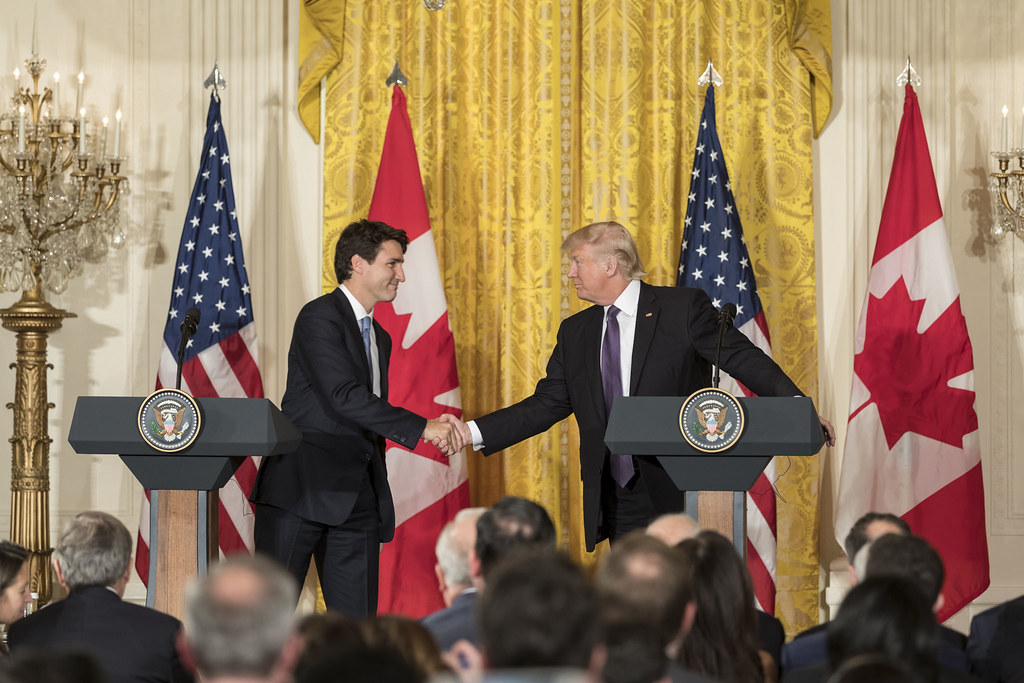The failure of the Trudeau government to get Canada elected to the United Nations Security Council was an unprecedented affront in Canadian history. It was humiliating both for Canada – which invested considerable money, time and political capital – and for the Prime Minister himself. After all, it was his idea to compete against Ireland and Norway for a seat during his time as Prime Minister.
Two diametrically opposed conclusions have been drawn from this stinging setback. Some argue that the defeat in New York is not significant and does not diminish the relevance of Canada’s current foreign policy. Canadians, after all, do not seem to care in general, while failure is mainly attributed to a matter of timing, a dearth of resources invested in peace operations and international aid, or a lack of coherence and readability. In short, the issue is simply one of enhancing and funding the policy already in place to ensure Canada is “back” to the international arena.
Others see this demeaning defeat as the ultimate proof that the foundations of foreign policy should be entirely rethought. Beyond conjunctural causes, Canada’s defeat at the UN is symptomatic of structural deficiencies in its foreign policy. Canada’s role as a unifying force hit the wall of a harsh reality: the international community does not wish to grant Canada more influence. It has favoured less wealthy and less populous states that openly proclaim themselves as independent. Unfortunately, Canada has the reputation of being too soft to confront the major powers and too weak to defend principled positions. Canada needs to break out of its state of vassalage in order to establish itself as an influential international player.
This is all the more necessary as Canada must now navigate in an increasingly hostile international environment, marked by a fractured liberal international order. The COVID-19 pandemic has accelerated and intensified at least three fundamental geopolitical shifts: the aggressive and multidimensional rivalry between major powers, the dysfunction of multilateral institutions, and the withdrawal of the United States. This deadly combination is unprecedented and calls for a fundamental rethinking of Canada’s international policy, as two of its main pillars – multilateralism and the special relationship with the United States – have been weakened.
The Third Option
To address the extraordinary challenges facing Canada, Justin Trudeau might find the foundations of a credible alternative in his father’s foreign policy. Dubbed the third option, this alternative is based on the uncompromising defence of the country’s national interests and the assertion of its independence on the international scene.
The adoption of such an independent foreign policy would require a paradigm shift for Canada, which is accustomed to relying on others to make difficult choices on the international stage.
In concrete terms, an independent foreign policy means abandoning the old reflexes of dependency, which are to delegate Canada’s strategic orientations to the UN, NATO and Washington. It must first and foremost think for itself. To do so, a difficult but necessary process of reflection is required to better define the country’s national interests.
Canada has three vital interests to defend in an increasingly hostile world: ensuring the security of its territory and its population, supporting the prosperity of its economy and avoiding being entangled in a global conflict.
These interests have long been ensured by the protection and superpower of the United States and by an international order governed by liberal rules and standards. In a context of rising protectionism, nationalism and revisionism, combined with climate change, these guarantees are no longer effective.
Defending National Interests
To defend its national interests, Canada must free itself from its state of vassalage and define ambitions in line with the means it is willing to commit. To defend its territory and its people, Canada must have the means to detect, deter and defeat any threat, whether it be cyber security, hypersonic missiles or foreign traffic near its coasts. While it is impossible for Canada to defend its territory without the cooperation of the United States, the fact remains that Canada can no longer rely entirely on its neighbour to the south to ensure that it has the intelligence and the support needed to guarantee its national security. Greater strategic autonomy is thus required.
Canada would benefit from looking to Australia, which has just undergone a major overhaul of its defence policy in order to develop a more independent strategic posture. While Canberra is not questioning its alliance with the United States, it nevertheless wishes to develop its own autonomy and its own means in order to guard against ambivalent support from Washington. Adopting such a strategic autonomy posture would be difficult in Canada, given its proximity to the United States, but it is now vital. The United States’ inward-looking attitude, combined with its great political volatility, does not allow us to assume that our neighbour to the south will be at our side, including to defend Canada’s vast Arctic territory, which is coveted by great powers.
In addition, the current pandemic has clearly demonstrated, from the lack of military personnel to support Canadian civilian authorities to U.S. attempts to prevent the delivery of masks to Canada, that Canada needs to increase its domestic capabilities and reduce its dependence on the U.S.
It would be naive to believe that all will return to normal following the American presidential election. Candidate Joe Biden advocates a protectionist and anti-Chinese posture similar in many ways to Trump’s. It’s not likely that the domestic discontent marked by deep economic and social distress will suddenly disappear in the aftermath of a possible Democratic victory.
To prosper in an era of protectionism and persistent rivalry with China, Canada requires an industrial policy capable of supporting greater self-reliance in key sectors such as emerging technologies, agri-food, strategic resources and renewable energy. At the same time, Canada must aim at doubling its population in an effort to benefit from a substantial domestic market. In addition, Canada must continue its attempts to preserve a rules-based economic order, such as the WTO reform initiative.
With respect to international security, the prevention of global crises remains a priority, as it would certainly bring Canada into disarray. Two issues are particularly salient: the potential escalation of regional conflict (for example, in Eastern Europe or the South China Sea) into a war between great powers; and mass migration due to climate change, civil wars and increased inequalities.
Possible Courses of Action
To prevent such disaster scenarios, Canada must adopt a multidimensional strategy, supported by deterrence, punishment, persuasion and upstream prevention. Canada should not confine itself to either of these roles, nor should it simply follow the United States’ lead. Strategic partnerships with key countries should be established to leverage Canada’s international influence while ensuring maximum flexibility.
Specifically, Canada must look beyond NATO to become more involved with a handful of key partners in Asia-Pacific whose interests converge with ours. It must favour coalitions of like-minded states on key issues that require international cooperation, such as climate change, cyber security and autonomous weapons.
It must also refocus its attention on the Arctic, a central geostrategic hub for Canada, and develop a concerted and firm strategy vis-à-vis China, particularly in the area of protecting strategic information and resources.
It is time for Canada to abandon its sanctimonious rhetoric and its tendency to walk away from the table when it is time to pay the bill. Rather than talking big and doing little, Canada needs to do more and speak more clearly.
Reviewing Foreign Policy
Defending Canada’s national interests and asserting its independence requires a major overhaul of its foreign policy. Two conditions are necessary for this to be achievable: a consensus among the major political parties on Canada’s strategic reorientation and the provision of adequate budgetary resources. Without political consensus, foreign policy will remain a source of partisanship, division and reversal after each election. Without adequate resources, Canada will be condemned to follow its allies or pay the costs of their indifference to our interests.
This will be particularly painful in the context of the post-COVID recession, because in every past period of fiscal restraint, regardless of the political party in power, budgets for defence, diplomacy and international aid have been cut. It is imperative to prevent such a scenario from happening again by fostering the aspiration of Canadians to equip themselves with the means necessary to ensure their security and prosperity in a belligerent environment.
To this end, a panel of experts should be mobilized to develop a picture of the current geostrategic environment, to define the contours of a more independent posture for Canada, and to engage Canadians in working together to lay the groundwork for a new strategic consensus.





Comments are closed.